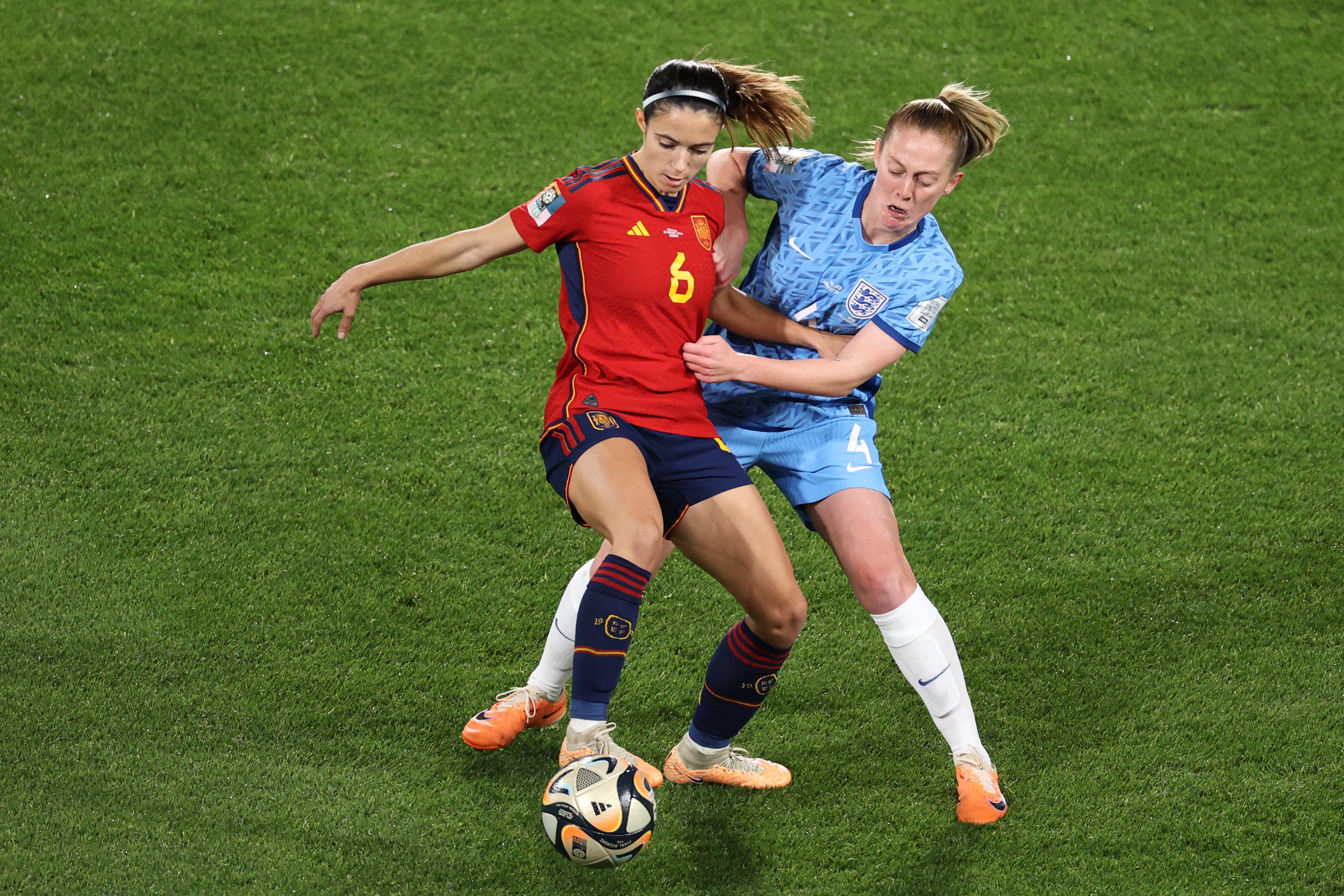The one problem England must solve to win the next Women’s World Cup
There isn’t a single English midfielder at any of the top WSL clubs of Arsenal, Manchester City or Chelsea. And without progress in the centre, England will struggle to overcome the world’s best technical teams

Your support helps us to tell the story
From reproductive rights to climate change to Big Tech, The Independent is on the ground when the story is developing. Whether it's investigating the financials of Elon Musk's pro-Trump PAC or producing our latest documentary, 'The A Word', which shines a light on the American women fighting for reproductive rights, we know how important it is to parse out the facts from the messaging.
At such a critical moment in US history, we need reporters on the ground. Your donation allows us to keep sending journalists to speak to both sides of the story.
The Independent is trusted by Americans across the entire political spectrum. And unlike many other quality news outlets, we choose not to lock Americans out of our reporting and analysis with paywalls. We believe quality journalism should be available to everyone, paid for by those who can afford it.
Your support makes all the difference.The Women’s World Cup final had barely started and England realised they were in a bind. Spain’s possession was dragging the players all over the pitch and completely distorting Sarina Wiegman’s shape, which meant they had to press that bit higher. As soon as they did that, however, Aitana Bonmati and those around her just passed their way into even more open space.
“That’s the quality of Spain,” a magnanimous Wiegman said afterwards, almost resigned to their superior quality. But that is also a new twist on a vintage problem, one which may point to the future for both England and the game.
It’s just over a decade since Premier League midfielders – and the rest of the world – were finding the exact same challenges against Andres Iniesta, Xavi and Sergio Busquets in the men’s game. The comparisons have already been made with this Spanish midfield, led by Aitana. The success of Spain’s men ended up influencing the entire sport, creating a spate of technically adept players, which has now come full circle. Frenetic pressing reigns for men, but it took over a decade.
The women’s game is at the other side of the curve. Spain represent the extreme example of an ongoing transformation, that has already seen the technique of European academies take the game – and the ball – away from the United States. It is going to have increasing influence.
It may also pose a problem for England. Because, in recent years, English academies have been among the few in Europe not producing this type of player.
It is why, for all the optimism after another international final, there is an issue to work out if this is to be the start of an era rather than just the end of a cycle.
There isn’t a single English midfielder at any of the top WSL clubs in Arsenal, Manchester City or Chelsea. At least one manager in the division is known to have complained about it, pointing to a lack of quality coming through in that area. “There’s no one in the pipeline,” one involved source says. England is obviously still producing a lot of talent, but it’s mostly in other positions.
There’s also a feeling that this tournament – and especially that landmark final against Spain – showed England are missing exactly that approach. That is something that has been said before.

An obvious response here is that Georgia Stanway is at Bayern Munich and Keira Walsh at Barcelona.
That’s part of the issue, though. Stanway is superb in that role but was made isolated by Spain's superior numbers here. The Barcelona players deeply respect Walsh as a world-class midfielder, but not primarily for that pace of pass.
The main point was that Spain were able to just play around and through them. And, having had such success with this, the rest of the world is going to seek to emulate Spain further.
England may not be able to in the same way, for some time, because they lack that kind of player.
It similarly points to a schism that was already evident throughout this World Cup, and again goes back further in the men’s game. Spain’s midfield technique both comes from and facilitates a deeper ideology. Without that, Wiegman had to go to a more pragmatic approach.
That may have to continue if she does stay in the job, but could be an even bigger issue for her successor.
That doesn’t mean it is a terminal problem, or even completely prohibitive to more trophies. English academies are still producing so much talent in general.
They just need to get back to thinking about a specific type of talent in midfield, and also about how to stop such players.
It is the future of the sport.
Join our commenting forum
Join thought-provoking conversations, follow other Independent readers and see their replies
Comments